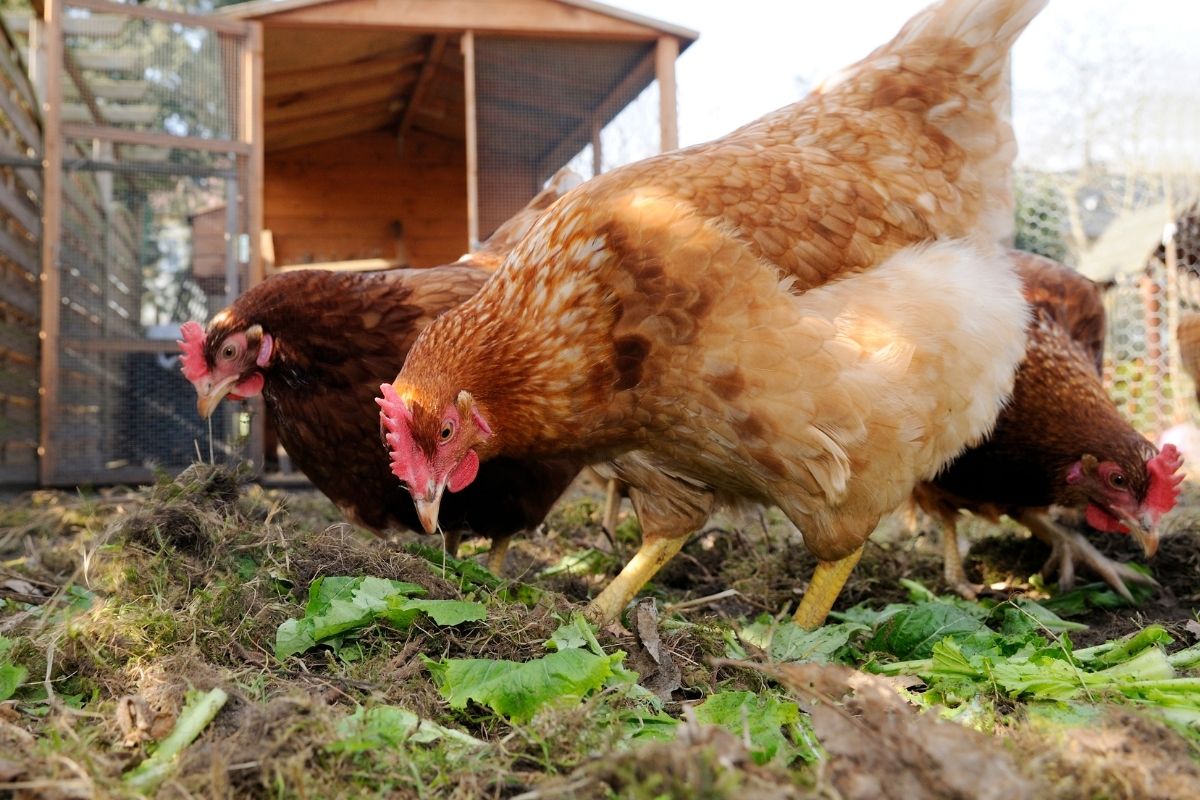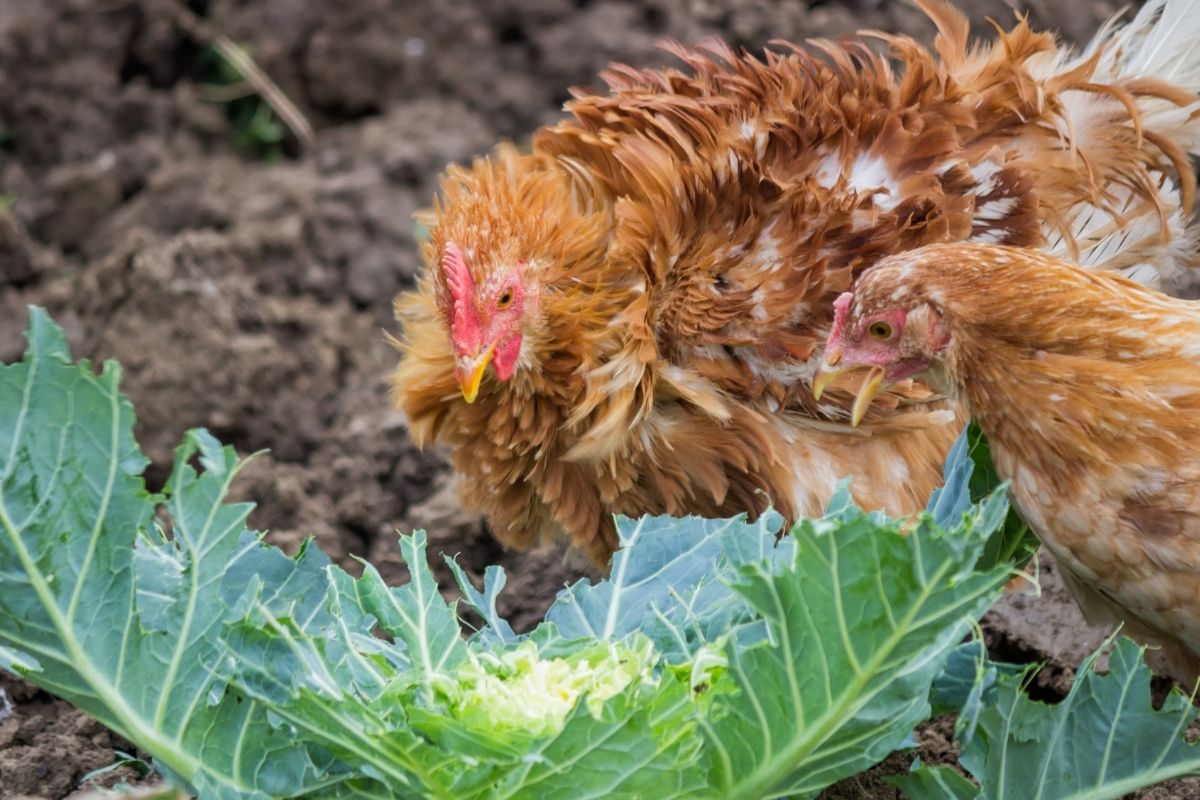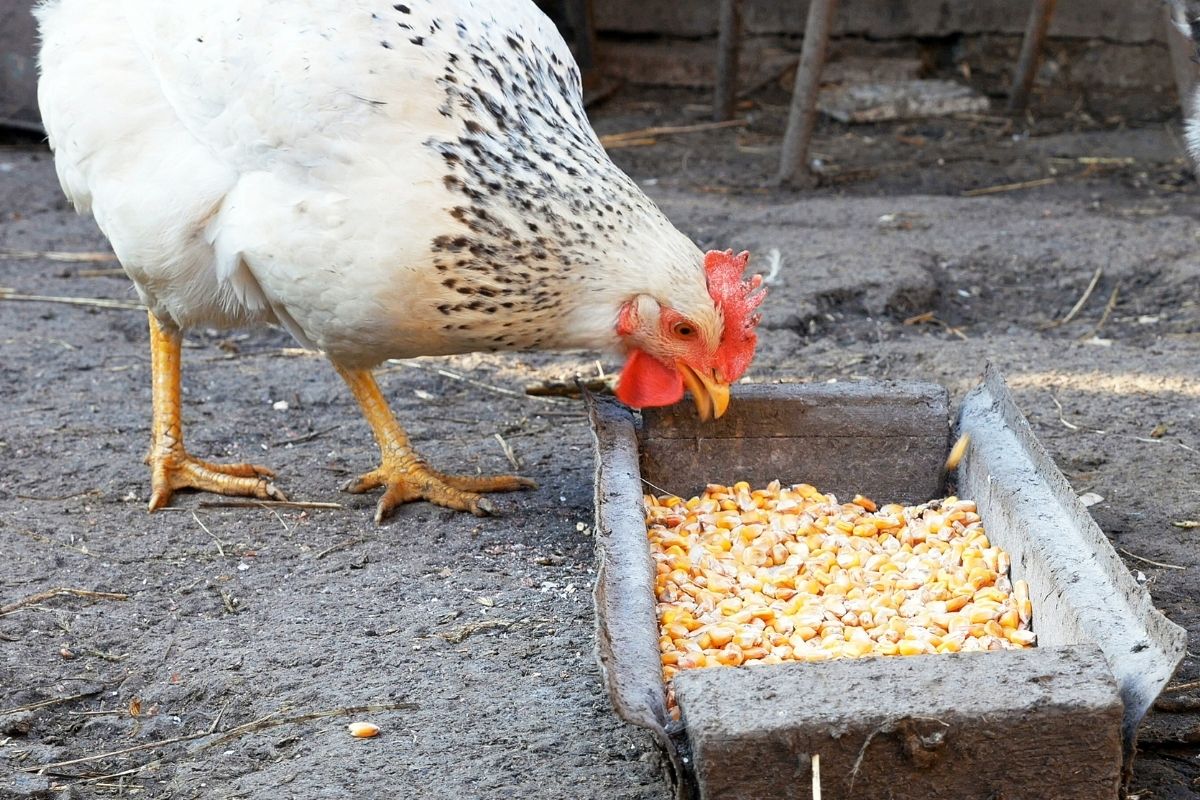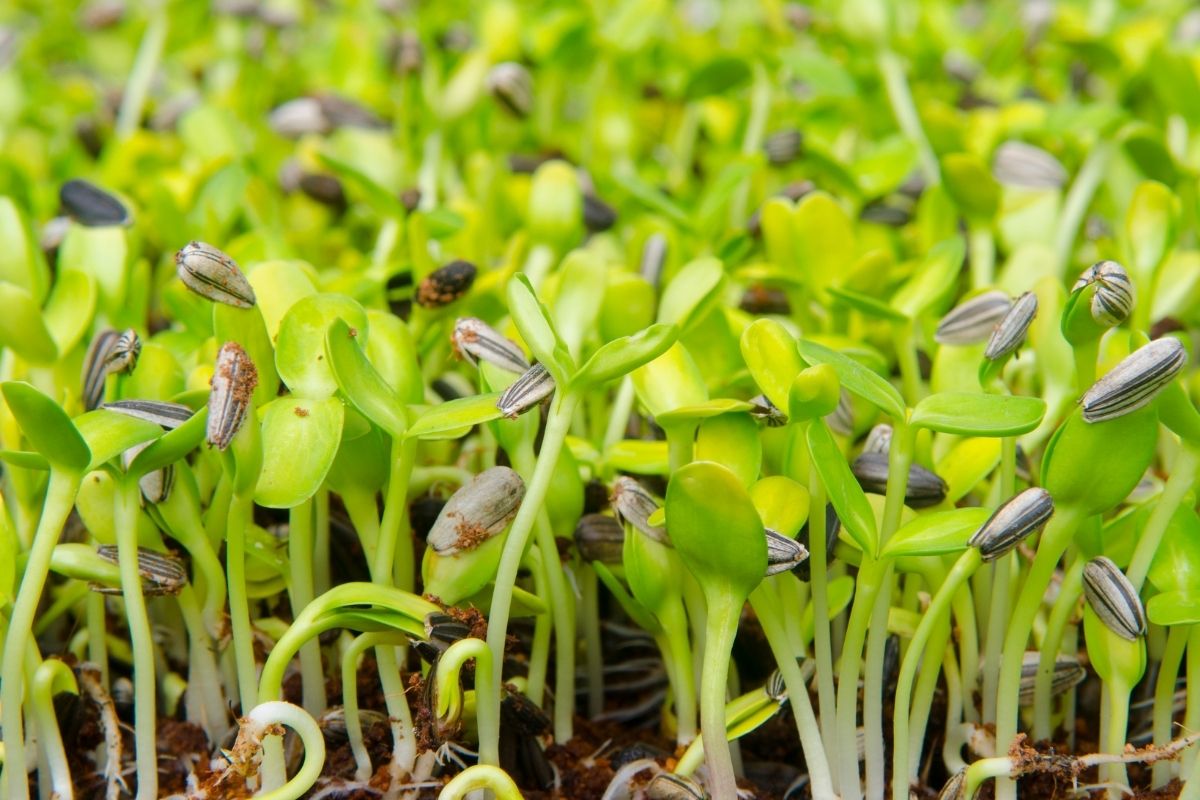Chickens are some of the greatest food recyclers of all domesticated animals. A few chooks can turn food waste into valuable nitrogen for your garden (through their manure) and protein for you (through their eggs).
In home gardens where space and time are limited, chickens are a great way of adding animals that will happily hoover up kitchen scraps, weeds and soft garden prunings. But there's no reason to limit your chickens' treats to waste only. By growing some crops specifically for them to eat you can improve your chooks’ nutrition, produce healthier chickens and better eggs, and give them some enrichment and stimulation through a more varied diet.
You won't be able to completely replace chicken feed with homegrown veggies – a mix specially formulated for chickens will still be their main source of protein, which is vital for egg production – but there are several economical and easy-to-grow plants that they'll greatly appreciate as supplements. Watching your chickens peck at some fresh leafy greens, homegrown grain or just-sprouted seeds is as entertaining as it is satisfying.
Any chicken owner can tell you how destructive even a couple of chickens can be in the garden. Unless you free-range your chooks, growing their feed just outside the coop where it’s easy to harvest gives the plants a chance to establish. You can then regularly break off individual outer leaves for feeding while leaving the rest of the plant to continue growing. For even more variety, sow seedling trays thickly with leafy greens and put the entire tray into the coop while the plants are young, so the chickens can forage the plants themselves.
Here are three great options for easy to grow plants to supplement your chicken's feed:
1. Leafy Greens
Leafy greens are famed as nutritional powerhouses for humans, and many of their health benefits translate equally to chickens too. With their generous amounts of iron and vitamins C, A, and K, greens provide a well-rounded nutritional boost, and the darker the green colour, the richer in colour you can expect your chickens' egg yolks to be.
Greens are probably the food a chicken is most likely to forage for given the choice, and they can get through surprisingly large amounts. This means it's a good idea to grow a wide variety of greens, not only to provide a wide range of health benefits but also to keep up with demand. Some of the most chook-friendly greens include:
- Silverbeet, especially the leaves (you may need to compost the larger stalks unless the chickens are really hungry).
- Nasturtiums, particularly rich in vitamin C and said to encourage laying.
- Lettuce, fast-growing and economical to provide a bulk crop.
- Kale, high in calcium to help with shell production.
- Cabbage and other brassicas, which can add valuable folate for healthier feathers and higher egg production.
- Pak choi, a great source of vitamin C for a stronger immune system.
Alternatively, if you don't want to grow a dedicated supply of greens, your chickens will love the tough outer leaves from your own crops. When harvesting produce, make it a habit to remove the outer leaves and any damaged parts and throw them to the chooks before taking the rest to the kitchen to enjoy yourself. If your donated leaves contain a side dish of caterpillars or other pests, then all the better. Chickens are omnivores, so they'll readily snack on any and all bugs and insects you find in your garden, so make the chicken run your first point of pest disposal.
2. Plants to Dry for Seed
Not all plants need to be actively growing when given to your chickens. Letting some types of plants mature and go to seed can provide a long-lasting store of nutrients, as well as adding textural interest to your chooks' diet to keep them entertained.
Some of the best plants to grow for seeds include amaranth, sunflower, corn and pumpkin. This is not only because chickens love to eat them, but also because each plant can provide a large number of seeds for drying and storing, making it worth growing them even on a small scale.
To dry seeds from amaranth, sunflower and corn, cut off the seed heads and some stem, hang them up to let the seeds dry in place, then scrape off as needed and feed them directly to the chickens.
Pumpkin seeds can be scraped from the centre of the fruit and served fresh, including the mess of stringy flesh that's attached, or cleaned and left to dry for use throughout winter.
3. Sprouts
Sprouted seeds are a great way to add a fresh and healthy ingredient to your meals, but they can also add variety to your chooks' diet. Sprouts are a great source of vitamins and protein, and are especially useful to grow in the cooler months when there's less natural forage available.
For most popular seeds it takes only a few days to provide a fresh meal for your chickens, and it's much more economical than buying fresh produce or getting a little too generous with kitchen scraps.
More or less any edible seed can be sprouted, but for chickens some of the most popular include wheatgrass, alfalfa, chickpeas and oats. Be wary of sprouting larger bean seeds such as kidney beans, as these can be toxic to chickens in large amounts.
To sprout your seeds:
- Rinse seeds and lay them out on a large shallow tray.
- Cover with lukewarm water and soak for 12 hours.
- Drain water, rinse and drain again.
- Place the tray in a dark, warm location.
- Rinse and drain the seeds once or twice a day until the shoots are approx. 3.5-5cm long.
- Expose seeds to sunlight for around 15 minutes or until the shoots turn green to improve their nutritional benefit.
4. Sunflowers
If you grow sunflowers for their beauty, at the end of the season you may be left with more seed heads than you can handle. Simply place a whole head into the chicken run to provide both nutrition and pecking amusement, with the seeds being an excellent source of protein during the autumn moulting season.
5. Mulberry Trees
Lastly, if your chicken run is large enough, consider planting a mulberry or similar fruit tree inside it. It'll provide shade on hot days, and also drop ripe snacks into the run over most of the summer to add extra sweet treats to your chickens' diet, rich in vitamin C for an immune system boost.
All of these plant ideas are easy to grow without putting too much of a dent in your chicken feed budget. And by increasing the variety of food they have daily access to, you'll be rearing happier, healthier chooks that reward you with more and better eggs.









